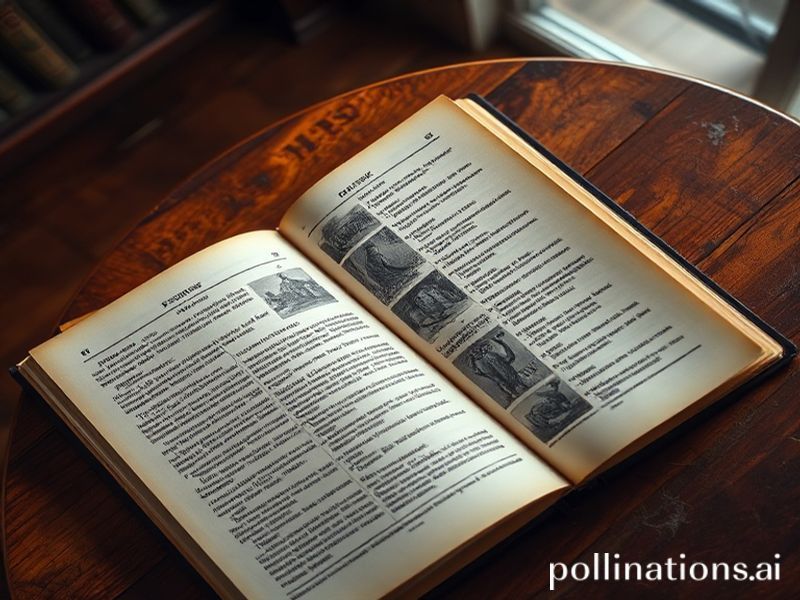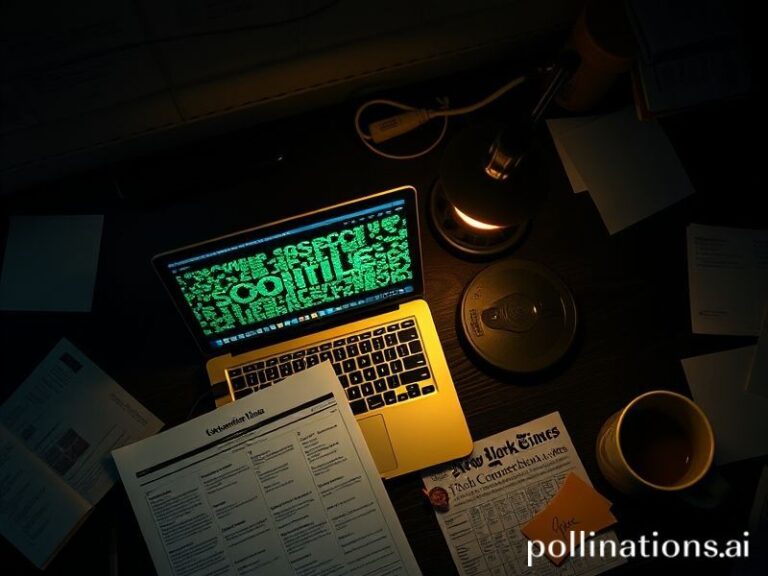The Dictionary Debacle: Why the Humble Wordbook is Suddenly Everywhere
### The Dictionary Debacle: Why the Humble Wordbook is Suddenly Everywhere
In a world where emojis often replace entire sentences and autocorrect has become our unpaid editor, it might seem like the dictionary is about as relevant as a dial-up modem. Yet, here we are, in the throes of a global dictionary craze. From viral TikTok trends to heated debates on Twitter, the humble wordbook is making a comeback, and it’s not just because people suddenly want to impress their book clubs. So, why is the dictionary trending, and what does this mean for our collective vocabulary?
#### The TikTok Effect
Let’s start with the obvious: TikTok. The platform has a knack for turning even the most mundane topics into viral sensations, and the dictionary is no exception. The #DictionaryChallenge has users showcasing their favorite words, often with dramatic flair, while others debate the meanings of obscure terms. It’s a delightful mix of education and entertainment, proving that learning can be fun—who knew?
But TikTok isn’t just about the fun stuff. It’s also a platform for social commentary, and the dictionary has become a tool for that too. Users are highlighting words that resonate with current events, like “gaslighting” or “allyship,” turning the dictionary into a cultural commentary tool. It’s a clever way to educate while also sparking important conversations.
#### The Great Debate
Of course, no dictionary trend would be complete without a good old-fashioned debate. The internet loves a good argument, and the dictionary provides ample fodder. Take, for example, the ongoing battle over the definition of “literally.” Some argue it should only mean “actually,” while others insist it can be used for emphasis. The debate rages on, and it’s a reminder that language is fluid, and the dictionary is just one part of that ever-evolving landscape.
Then there’s the issue of inclusivity. Dictionaries are constantly updating their entries to reflect the changing times, and not everyone is happy about it. Some traditionalists argue that adding words like “they” as a singular pronoun is a slippery slope, while others see it as a necessary evolution. The dictionary, it seems, is a battleground for cultural values, and the internet is the arena where these battles play out.
#### The Social Impact
Beyond the debates and the TikTok trends, the dictionary’s resurgence has a real social impact. In a world where misinformation runs rampant, having a reliable source for definitions is more important than ever. The dictionary provides a common ground for understanding, a shared language that transcends borders and cultures.
Moreover, the dictionary is a tool for empowerment. Knowing the right word can be the difference between being heard and being ignored. It can be the key to unlocking opportunities, whether in education, employment, or social justice. The dictionary, in this sense, is not just a book—it’s a tool for change.
#### Why It Matters
So, why should you care about the dictionary trend? Because language shapes our reality. It’s how we communicate, how we understand the world, and how we connect with each other. The dictionary is more than just a collection of words; it’s a reflection of our culture, our values, and our collective consciousness.
In a time when the world feels increasingly divided, the dictionary offers a rare opportunity for unity. It’s a reminder that, despite our differences, we all speak the same language—literally and figuratively. And in a world where communication is key, that’s something worth celebrating.
#### Conclusion
The dictionary trend is more than just a fleeting internet fad. It’s a reflection of our cultural moment, a tool for education and empowerment, and a battleground for the values we hold dear. Whether you’re using it to settle a debate, learn a new word, or just have a good laugh on TikTok, the dictionary is here to stay. So, the next time you reach for your phone to look up a word, remember: you’re not just checking a definition—you’re participating in a global conversation.
—







